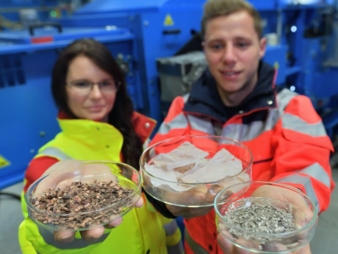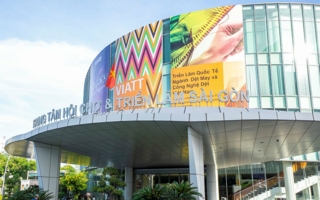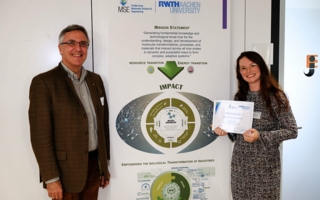21/06/2021 – Topics, trends and prospects — auf Deutsch lesen
STFI: Research in the scope of textile recycling
In the ZIM-network RE4Tex the STFI acts as the coordinator. Bernd Gulich and Johannes Leis, both at STFI, explain what this is all about.
In the ZIM-network RE4TEX funded by the Federal Ministry for Economic Affairs and Energy (BMWi) within the framework of the Central Innovation Program for SMEs (ZIM) and monitored by the project management organization VDI/VDE/IT the STFI acts as the coordinator. After completion of phase 1, the network’s consortium includes 14 regular and 10 associated partners. The companies represent the branches of production, finishing and processing of technical textiles. They are complemented by companies from the sectoral branches of mechanical engineering and special machine engineering. The research facilities are focused on technical textiles, textile recycling, smart textiles and mechanical engineering.
Circular economy and sustainability are becoming increasingly important for the whole textile industry. The prospective requirements to textile recycling are developing to the same extent as the textile products are. With its long tradition in mechanical textile recycling, the STFI takes up these challenges within a variety of different research projects.
Phase 2
In phase 2, the application, implementation and realization of research projects will be emphasized. Based on the products’ diversities of functional textiles, textile pre-products and smart textiles, four main development emphases have been established, which will be echoed in the research projects:
processing of production waste which can not be processed to reclaimed fibers by tearing
recycling of smart textiles
recycling of high-performance fibers
subsequent processing of textile production waste
The growing pile of used clothing is the center of another research project funded through the IGF program by the German Federal Ministry of Economic Affairs and Energy (BMWi). As a result, producing yarns with an increased share of reclaimed fibers but competitive properties compared with yarns produced of 100 percent virgin material shall be enabled. With cotton (most frequently used natural fiber) and aramid (performance, price level), two materials relevant to recycling will be observed. The projects’ goal will be accomplished through adapting and optimizing the technological conditions during both the recycling of the textile waste and the spinning processes with a higher share of reclaimed fibers. The STFI acts as research unit 2, lead by the German Institutes for Textile and Fiber Research Denkendorf (DITF).
The processing properties of finished textile waste which shall be fed in the textile chain again are fundamentally different from the originally used virgin material. That concerns the fiber length distribution, the fiber strength and elongation, the fiber/fiber respectively fiber/metal friction, the fiber’s behavior during homogenization processes and the tendency to break. Those properties are decisive in order to adjust the ideal processing parameters as well as the achievable yarn and product quality.
Key for the solution of this problem is the overlapping knowledge about the requirements and possibilities for the separate process steps during the treatment of the textile waste, which enables a predictable process and product quality. Improvements in the respective process steps are the main motivation of the project.
A traditional part of the STFI’s activities in the field of textile recycling is the colloquium “recycling for textiles” which takes place for the 15th time in the hotel “Chemnitzer Hof” in Chemnitz on December 1st and 2nd 2021. Every other year the event offers a wide stage for all representatives from industry and research interested in textile recycling.
For more information,please click here.




